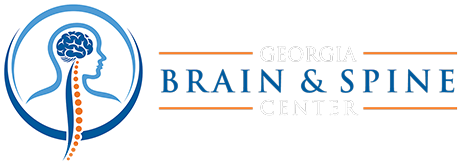Georgia Brain & Spine: Patient-Centered Neurosurgery
- Written by Webmaster Webmaster
- Category: Blogs Blogs
- Published: 26 September 2019 26 September 2019
The human brain and nervous system comprise one of the, if not the, most complex systems known to humankind. Accordingly, neurosurgeons treat a wide variety of conditions and perform several different specialized surgeries. Here on our website, you can explore the brain and spine conditions we treat and procedures we perform at Georgia Brain & Spine, and we encourage patients to educate themselves on their conditions and treatment options. We also believe that a productive dialogue between patient and doctor is paramount, and we intend to use this blog to communicate with patients and potential patients in valuable ways. We want to provide readers with useful advice and interesting information, but we also want to express who we are as healthcare providers. Here are some of the main things we’d like you to know about our practice:
 At Georgia Brain & Spine, we believe in taking the surgical approach only when it’s the safest option, or when available nonsurgical methods have not produced the results we’re looking for. Neurosurgery is highly sophisticated, safe, and effective when performed by an experienced neurosurgeon, but surgery of any kind always carries some level of risk. Therefore, we only pursue surgery after establishing that it’s the safest and most effective way to address our patient’s issues and fully informing him or her of our reasoning.
At Georgia Brain & Spine, we believe in taking the surgical approach only when it’s the safest option, or when available nonsurgical methods have not produced the results we’re looking for. Neurosurgery is highly sophisticated, safe, and effective when performed by an experienced neurosurgeon, but surgery of any kind always carries some level of risk. Therefore, we only pursue surgery after establishing that it’s the safest and most effective way to address our patient’s issues and fully informing him or her of our reasoning.
One of the most innovative methods we use for removing tumors in highly sensitive areas like the brain and spine is called Cyberknife radiosurgery. This technique uses targeted radiation to remove tumors and treat some other conditions without breaking the skin. For a patient whose tumor is at a location or of a size that makes traditional open surgery more risky, a patient who’s in poor health, or a patient who simply wants to avoid open surgery, Cyberknife radiosurgery may be the best option.
Another procedure we specialize in is the epidural injection. The epidural space is the location in the spine outside the covering of the nerves (called the dura) and inside the spinal canal. We can deliver medications into this space to help decrease inflammation of nerves and help pain. You’ve probably heard about the epidural’s ability to make childbirth less painful for the mother, but there are several different types of epidurals with various applications. The most common consists of a combination of an anesthetic and an anti-inflammatory steroid that’s extremely effective for pain management. Depending on a number of factors, including the area of the spine being treated, one of several epidural injections may be used.
We’ve only scratched the surface of the conditions we treat, the procedures we perform, and what makes our approach to neurosurgery special. If you’ve received a diagnosis for a spinal or brain issue and would like a second opinion, or if you have any questions about the many procedures we perform, contact Georgia Brain & Spine at 1 (800) GO-SPINE today to schedule a free consultation. Be sure to follow us on Facebook and Twitter for the latest updates and to come back to the website next week for a new blog.
Welcome to Our Blog
- Written by Brain Doc Brain Doc
- Category: Blogs Blogs
- Published: 03 January 2019 03 January 2019
Our providers at Georgia Brain & Spine Center want to keep our patients updated on all relevant news and information concerning the brain, spine and nerves. Through our blog posts, we’ll be making a concerted effort to offer the most current and accurate details about a variety relevant topics. This is a forum designed to educate and inform readers as an extension of the care that we provide in-office.

